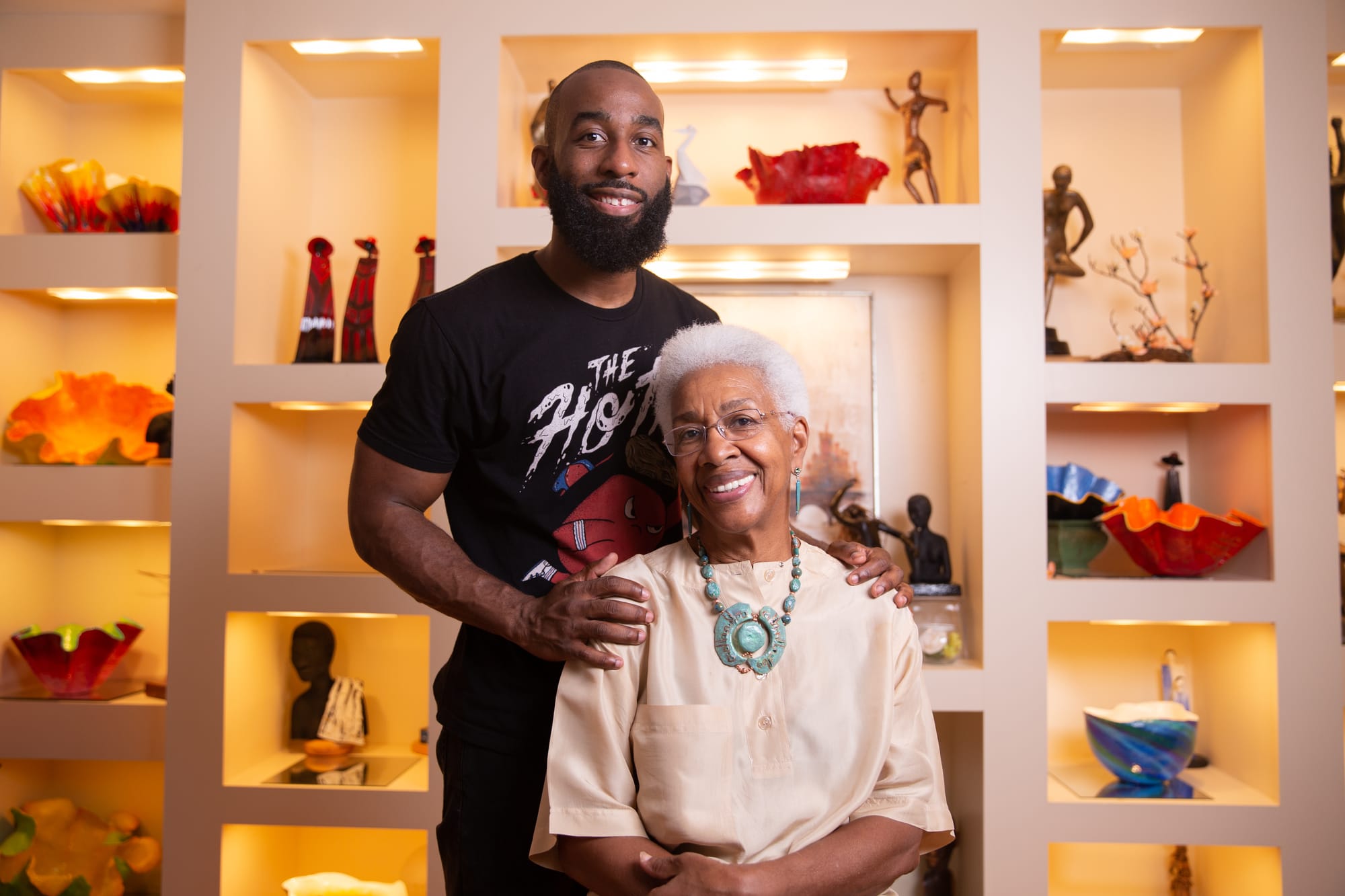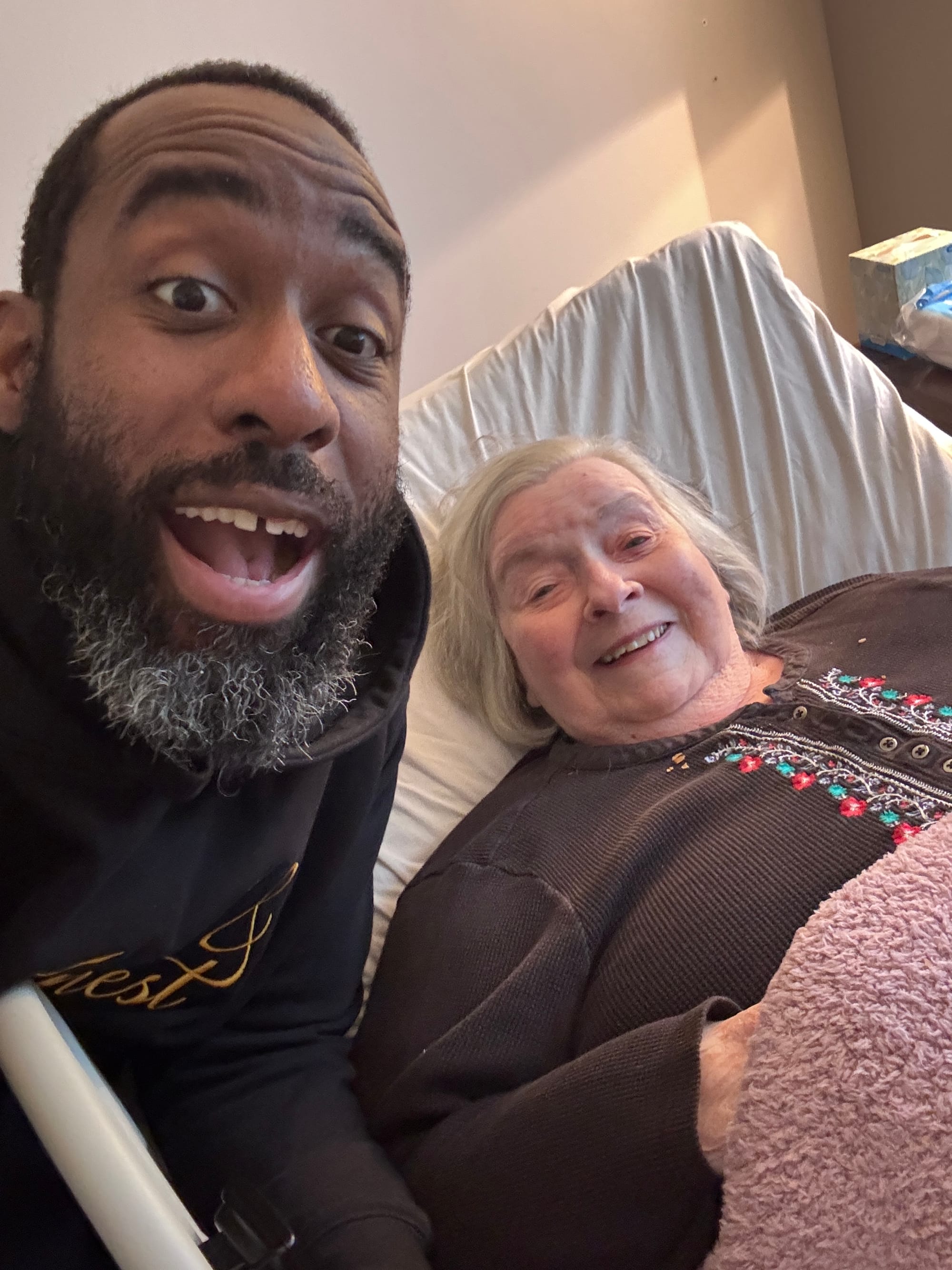Yvonne's Final Act of Civic Duty

The last thing my mother did before she died was to vote.
We knew Yvonne was going to die in early 2021.
I remember sitting in the doctor’s office as she told us that, while there were treatments left to try, the cancer had spread—reaching her lungs and bones. There was no turning back.
Yvonne took the news as she always did—without a single tear, with no complaint. “What good is crying going to do for me?” she said, her eyes resolute. Her energy shifted to savoring the time left, refusing to let sorrow rob her of it.
I spent most of 2021 bracing myself for the loss, yet she remained unshaken, her fierce spirit undimmed. I ruminated on if my manic episodes in 2019 and 2020 and the stress they brought into our lives had been part of the cause. If I could have finished the JoyWithPaper series if I wasn't so stubborn. I had been living with the feeling she had already died, grieving her loss in advance, long before there was reason to.
Even as her body began to fail her, she stuck to her routines with a defiant regularity. Jeopardy at 7 p.m., Wheel of Fortune at 7:30, Chris Hayes at 8, and Rachel Maddow at 9. These small rituals grounded her, keeping her connected to the world beyond her physical pain.
By October, however, the reality of her illness could no longer be ignored. She could no longer walk or leave the house. The woman who had lived so independently was forced to confront her body’s betrayals, grappling with the limitations that refused to yield to her will. Her mind remained sharp as ever, her spirit unbroken—but her strength was slipping away.
Still, even as her body weakened, her commitment to civic engagement stayed strong. Politics had always been close to her heart, and this year, more than ever, she was determined to have her voice heard. She could no longer walk to the polling station, so we arranged for a mail-in ballot, figuring that would be her way to cast her vote.
But then we waited. And waited. And waited.
The ballot never came.
“Mom, it’s okay,” I told her gently, sensing her frustration. “You can skip this one. It’s just Jersey.”
“Not vote? Ya mussy mad?” Her eyes, even in the dim light of the tiny bedroom, gleamed with a fierceness anyone with a Jamaican mom knows well. “We’re going to the library.”
Easy for her to say—I was the one who had to lift her, get her down the stairs, and somehow maneuver her all the way to the polling station. But she was right, and I knew it. The best thing about having cancer, she’d joke, was that everyone had to do what she said, no complaints or arguments.
So we made it happen. The process of getting her to the library became a labor of love, a testament to her tenacity. First, I had to lift her from the bed in a bear hug, maneuvering her just to get into the chair at the top of the steps. One step at a time, I helped her scoot down the staircase—her feet moving two steps below, her body slowly lowering down to follow. It took ninety minutes to get her out of the house. By the time we made it to the wheelchair, then the car, then down the hill those three long blocks, she was exhausted. But her eyes never wavered.
And so, she cast her vote.
That is civic duty. Yvonne understood the weight of history and the importance of voting in our society. She didn’t take it for granted and never assumed she was too small to make a difference. If she could do it, what’s stopping anyone else?
And you bet your ass she would be voting for Kamala Harris. She would be mad that I said ass, but she would agree with the sentence.
Today, she would have turned 81. Every birthday, she’d spend the morning with one of her closest friends, Dorothy Vanderwerf, who shared the same birthday. It was their tradition to have breakfast together, and even now, that ritual felt too important to ignore. So I visited Dorothy at her nursing home, honoring one last tradition worth keeping.

In the end, my mother taught me that some battles are worth every ounce of strength we have left—no matter the cost.